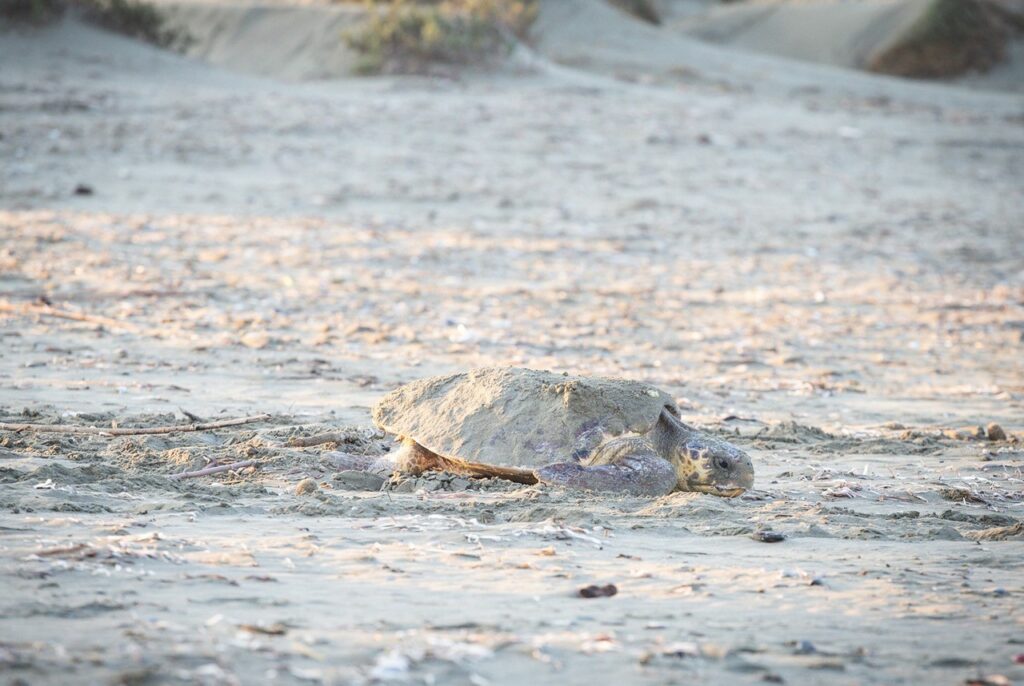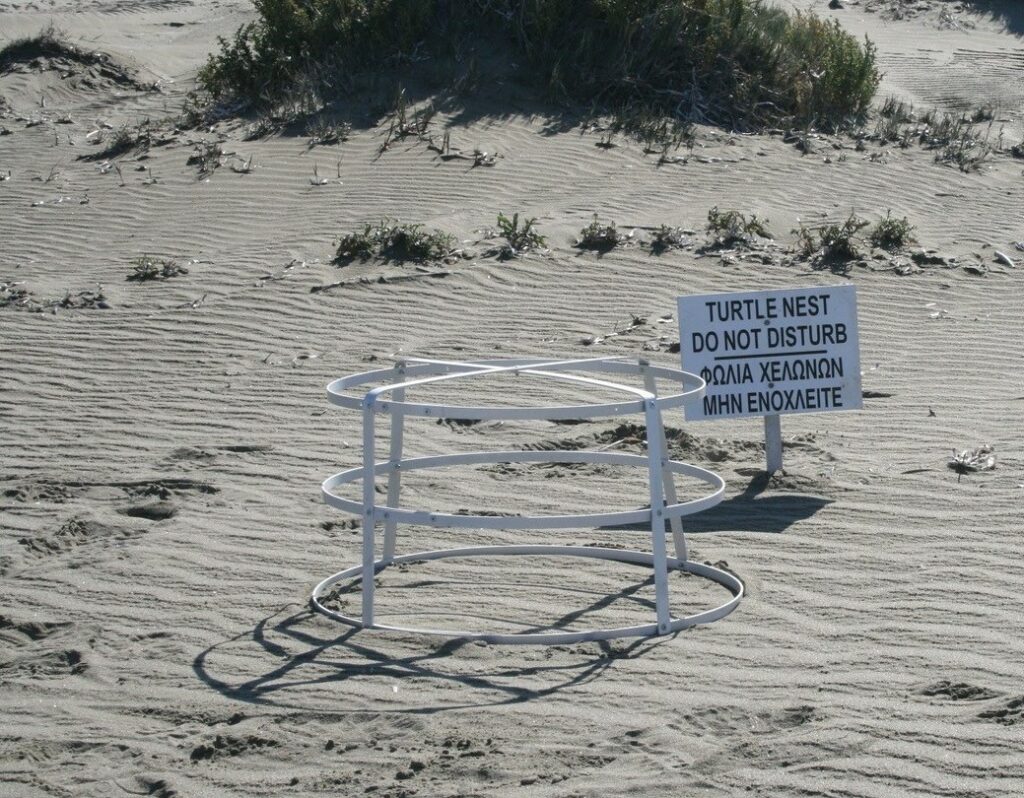Filenews 17 September 2024
A record 382 sea turtle nests on all sandy beaches within the British Bases are recorded by environmental experts.
Last year's number was the second highest with 282 nests and this shows the relentless work undertaken by the Bases administration to protect the nests.
Green Turtles and Caretta Caretta Turtles are protected species and only 1 in 1,000 pups reaches adulthood.
This shocking statistic, according to the Bases' Senior Environmental Officer, Alexia Perdiou, makes it even more important to take more effective protection measures.

Between 1994 and 2011, an average of only 30 turtle nests were discovered on BB beaches, and explaining the current success, Perdiou said: "BBs are committed to protecting turtles in accordance with the Nature and Wildlife Protection Act.
"Since the enactment of the decree, the SBA Environment Department has been implementing a minimum intervention protocol for turtle conservation by applying the European Habitats Directive.
"The rapid increase in nests is the result of systematic, non-invasive practices and policing aimed at reducing illegal, harmful activities on nesting beaches.
"The fact that there are no growths and bright lighting on most of the sandy beaches of the BB contributes to the protection of this important species.
"It takes about 20 years to assess whether the protection measures in place are effective. This is the period it takes for the hatchlings to grow up and return to the beach where they were born to lay their eggs."
However, despite the "least nuisance" approach, Perdiou revealed the measures currently in place for the safety of the chicks.

She explained: "The beaches are walked daily by volunteers and when nests are found they are protected with an aluminium cage. The cage is placed primarily to deter predators such as foxes and dogs.
"There is no further intervention in the nests and the hatchlings are left to come out of the nests on their own, of course. The first path of newborn turtles from the nest is very important for their survival. The hatchlings have to move on their own in the sand to capture the characteristics of the beach and be able to return to the same beach when they reach adulthood to give birth."
Disturbing nests by humans – driving on beaches, barbecue parties and bright lights – is punishable by a fine of up to €17,000 and/or imprisonment of up to three years and it seems that this has proven to be a deterrent.
But despite the undeniable success, Perdiou believes this is not the time to celebrate and said BB and all the other organisations and individuals involved will not give up: "The increase in nests is very encouraging but in no way a reason for the relevant authorities to be complacent.
«Protection measures continue as normal, are being improved where necessary and the joint efforts that have led to these excellent results will be strengthened.
"This cooperation consists of the BB Command, the military authorities, the local communities, the public departments of the Republic of Cyprus, Non-Governmental Organizations and volunteers."
